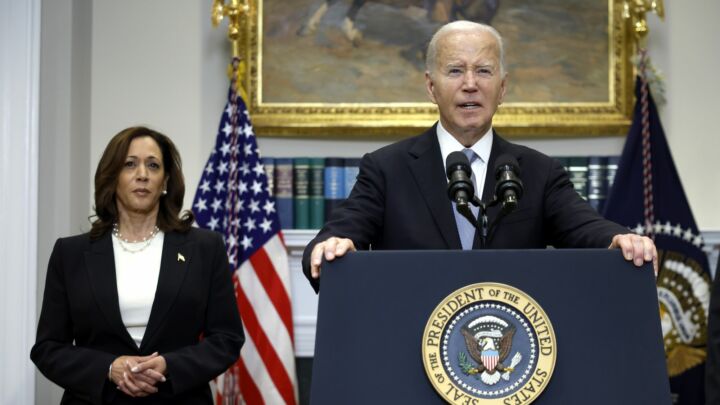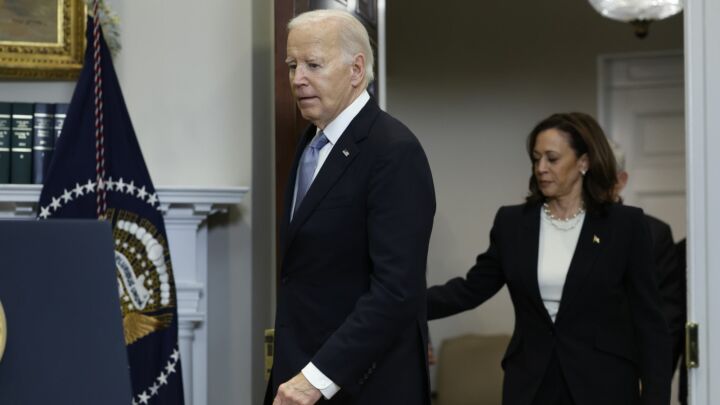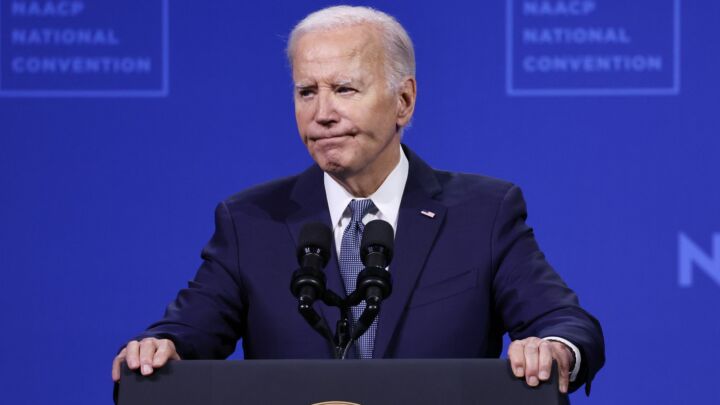The question of ‘who rules?’ still haunts British politics
The battle in the courts over the Rwanda deal has made a mockery of democracy.

Thanks to the UK government’s ill-fated Rwanda policy, the question of ‘who rules?’ has haunted British politics once again this year. Is it our democratically elected government or the unelected judges of the Supreme Court and the European Court of Human Rights (ECHR)?
The government originally announced it had reached an agreement to deport asylum seekers who had entered the UK illegally to Rwanda way back in April 2022. According to the plan, those deported would then be able to apply for asylum in Rwanda in central Africa, rather than in the UK.
From the very start, the government’s Rwanda plan was mired in legal challenges. In June 2022, judges at the ECHR in Strasbourg prevented the first flights from taking off by issuing a last-minute injunction.
Then, in December 2022, the UK’s High Court ruled in the government’s favour and declared the Rwanda policy to be lawful. But those hoping the law would thwart the Rwanda policy weren’t done yet. This year, they took their case to the Court of Appeal, which overturned the High Court’s judgement this summer.
In response, the government went to the Supreme Court. In November, it delivered its verdict. The justices ruled that the Rwanda policy entailed the very real risk of asylum seekers being deported to their country of origin without their asylum applications being fairly considered. The forcible return of refugees to a country where they are liable to be subjected to persecution – known in international law as ‘refoulement’ – is forbidden under certain pieces of domestic legislation and international treaties, most notably the UN’s Refugee Convention of 1951. And so the Supreme Court ruled the Rwanda policy unlawful.
Since then, the Tories have been tearing themselves apart over how to revive the Rwanda policy. Supporters of ex-home secretary Suella Braverman have advocated leaving all our international legal obligations, including the ECHR. Centrist Tories, now the leading faction, have argued for a more qualified approach, which retains some rights under human-rights laws.
The latter camp has so far won out. The government is pushing through legislation that would unilaterally declare Rwanda a safe country for the purpose of processing asylum claims. However, the bill also permits individual claimants to apply for a judicial review of the decisions to deport them.
This bill has divided the Tories still further, between those who want the UK to exit international treaties and those who want to work within them. So heated has the debate become that Robert Jenrick resigned as immigration minister earlier this month, claiming the revised Rwanda plan would once again be stopped in the courts.
The Tories are supposed to be the party of competence and stability. But their handling of the Rwanda policy blows this idea apart. While they have engaged in a futile war in the UK courts, an appalling trade in human misery is continuing across the English Channel. No civilised country in the world should have to tolerate this scale of people-trafficking and organised criminality on its border. Yet the government has been totally incapable of putting a stop to it.
The government’s greatest failing has been its unwillingness to reconsider the laws and treaties that have empowered the unelected judiciary to dictate our migration policies. The domestic and international laws that informed the Supreme Court’s ruling in November, including the the Refugee Convention of 1951, were created in the aftermath of the Second World War. There now needs to be a serious democratic debate about how to update these laws to fit modern times and needs. And we need to debate whether we want to retain the various treaties that have frustrated the government’s policy.
This would allow for a complete overhaul of our current asylum system and the development of a far more humane approach to asylum seekers. As it stands, aside from a few bespoke schemes for particular countries like Ukraine, the UK currently maintains no safe and legal way to claim asylum in the UK without the claimant being present in the country. This ridiculous situation is actually fuelling the traffickers’ grim business model.
The government has claimed that it will look into providing ‘safe and legal’ ways of claiming asylum outside of the UK after it has tackled the immediate problem of illegal immigration. But there is no reason to delay. More safe and legal routes would reduce the justification for attempting to enter the UK illegally.
In 2024, we need a government willing to challenge the laws that have made our borders so difficult to govern. This is why the issue of immigration is so important. Control over our borders is a prerequisite for exercising democratic control over our country. Tory Brexiteers famously promised to use Brexit to ‘take back control’. If it’s not to be the Tories, it’s time someone else made good on that promise.
Luke Gittos is a spiked columnist and author. His most recent book is Human Rights – Illusory Freedom: Why We Should Repeal the Human Rights Act, which is published by Zero Books. Order it here.
Picture by: YouTube.
To enquire about republishing spiked’s content, a right to reply or to request a correction, please contact the managing editor, Viv Regan.









Comments
Want to join the conversation?
Only spiked supporters and patrons, who donate regularly to us, can comment on our articles.